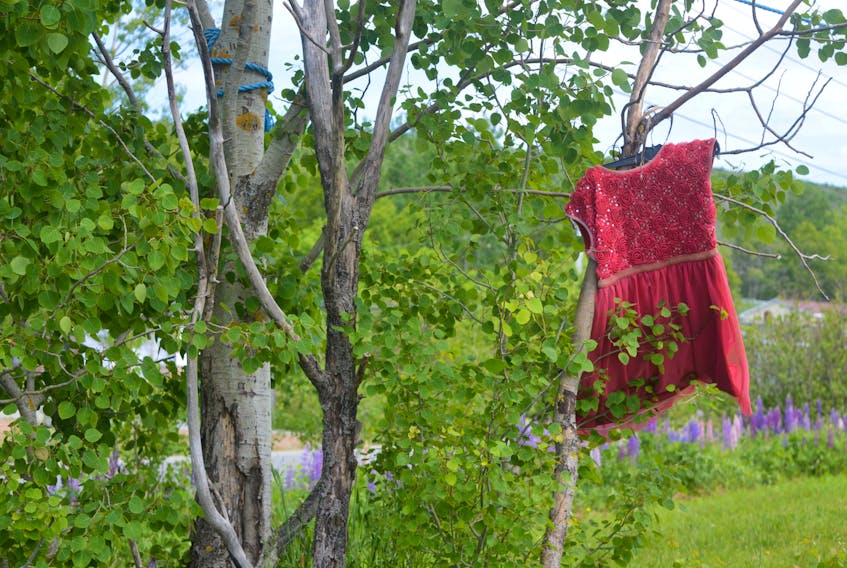On Oct. 27, 2019, the Latin American Mission Program hosted Qajaq Robinson, commissioner on the National Inquiry into Missing and Murdered Indigenous Women and Girls, for a community dialogue on the commission’s final report at the Lady of the Assumption Parish in Stratford. Following the event, Qajaq and the Island’s Mi’kmaq community called upon the Latin American Mission Program to do more in the fight for justice and equity.
Wednesday, June 3 marked the report’s one-year anniversary. The following day Chantel Moore was murdered by an RCMP officer during a wellness check in Edmundston, N.B. According to the Globe and Mail, there have been seven Indigenous people shot to death at the hands of Canadian police in under two months. Twenty-six-year-old Chantel, sadly, was the most recent person added to that list and her premature death has left her five-year-old daughter without a mother, shedding light on the generational impacts of Canadian colonialism.
Often, people think of colonization as an event that took place at one historical moment centuries ago. In this thinking, colonization was over and done at the end of the wars of conquest. The voice of Indigenous peoples of the Americas, however, tells us that European colonization is an ongoing relationship of colonization over the centuries and decades. Rather than a dot on the timeline of the world’s history, colonization is a continuous line which has been drawn throughout generations and generations.
The term “colonization” commonly thought of as the original act of a foreign nation “discovering” other lands, taking full control, and claiming full ownership of the territory. The reality of European expansion from 1492 and onward was the interpretation of the doctrine of terra nullius, meaning empty land. It meant that the explorers could claim for their rulers ownership only of non-peopled lands.
By dispossessing Indigenous people of their land, they discredited their relationship to the land – that it was to be used, not owned. Settlers neglected to respect this indigenous concept because they didn’t perceive the people they encountered as fully human. The initial dehumanization of Indigenous peoples by European settlers lead to dim-witted attempts to “civilize” them. What followed was a cultural genocide on the original inhabitants of the land led by the Canadian state with support from the church.

The European settler is as alive today as they were in 1492. They are the product of decisions made by generations before them who institutionalized their benefit at the expense of the Indigenous peoples and their ways of living. They uphold and maintain the policies which promote the destruction of Indigenous culture and the deprivation of its people. The 2,386 voices heard in the commission’s final report share countless experiences of explicit violent encounters, but point to a deeper, implicit, institutional racism constantly working against them. It is no coincidence that over 40 per cent of Canada’s Indigenous youth live in poverty, nor that Indigenous people make up 30 per cent of incarcerated individuals while only representing five per cent of the general population. The Canadian system isn’t broken when it doesn’t provide proper water infrastructure in many of the nation’s reservations, it is functioning exactly as it was always intended.
These implicit acts of violence towards Indigenous people are a means of economic gain for the colonizer. The wealth and prosperity of the Canadian state is a direct result of the ongoing oppression of Indigenous people and the dispossession of their land. Canada boasts a massive extractive industry through mining, oil and gas, whose profits were originally generated from the resources of the land of Indigenous peoples, but have expanded internationally in more recent years, proving that the settler-colonial mentality is still alive in modern day Canada.
But perhaps the most atrocious act of violence against the Indigenous community has been the silence of the Canadian general public. This, if any, is the clearest proof that the European settler is still among us. For that apathy is a result of internalized dehumanization of our Indigenous brothers and sisters, a complacency that has existed since the European “discovery” of a Turtle island (North America) at the end of the 15th century.
Marie Burge, Phil Callaghan, Joe Byrne, Irene Burge and Ryan MacRae, along with Scott Smith, Maureen Larkin, Irene Doyle, John Molina, Eddie Cormier, Andrea Simpson, Catherine Ronahan and Wendy Alba are members of the Latin American Mission Program.









